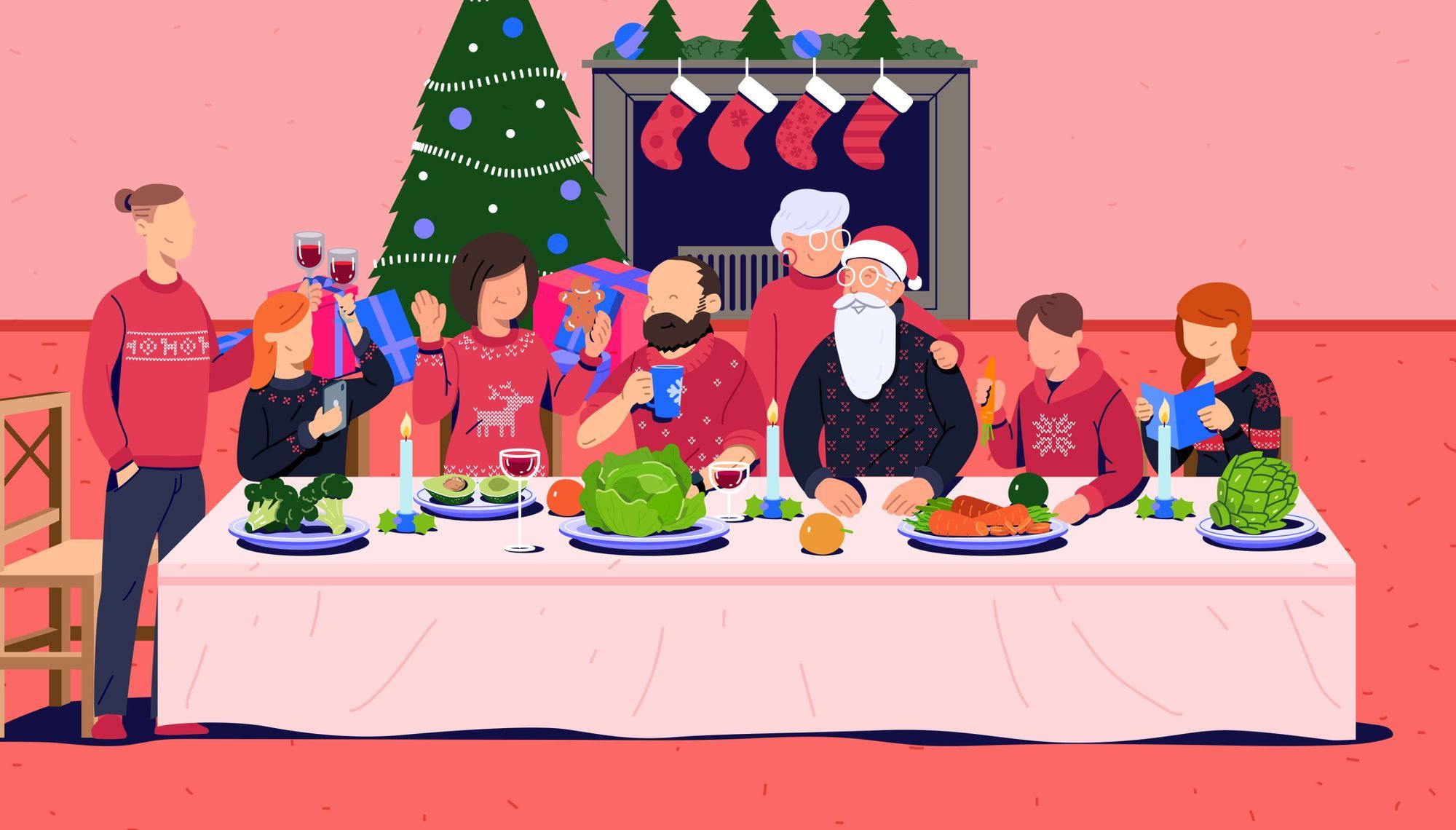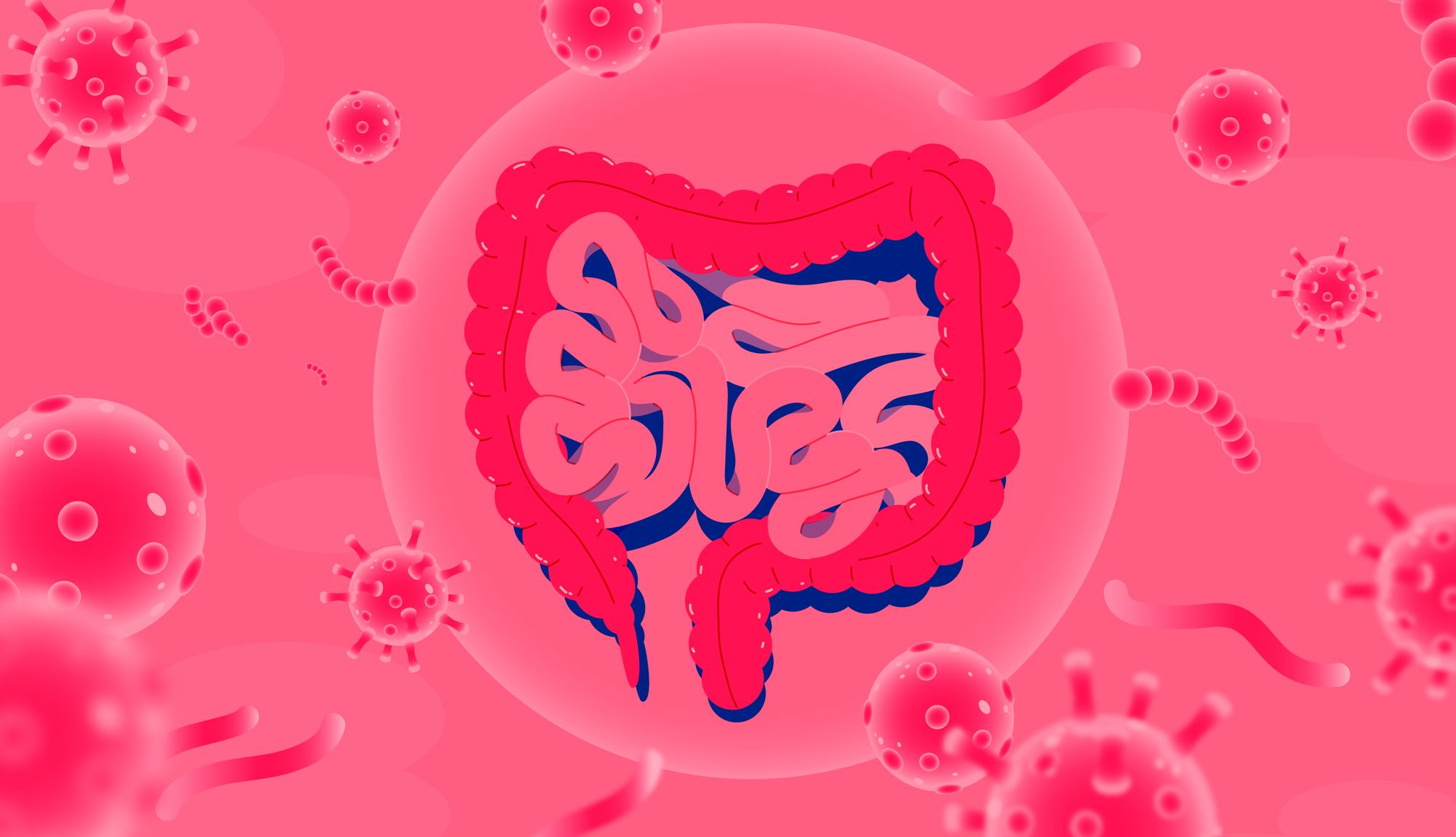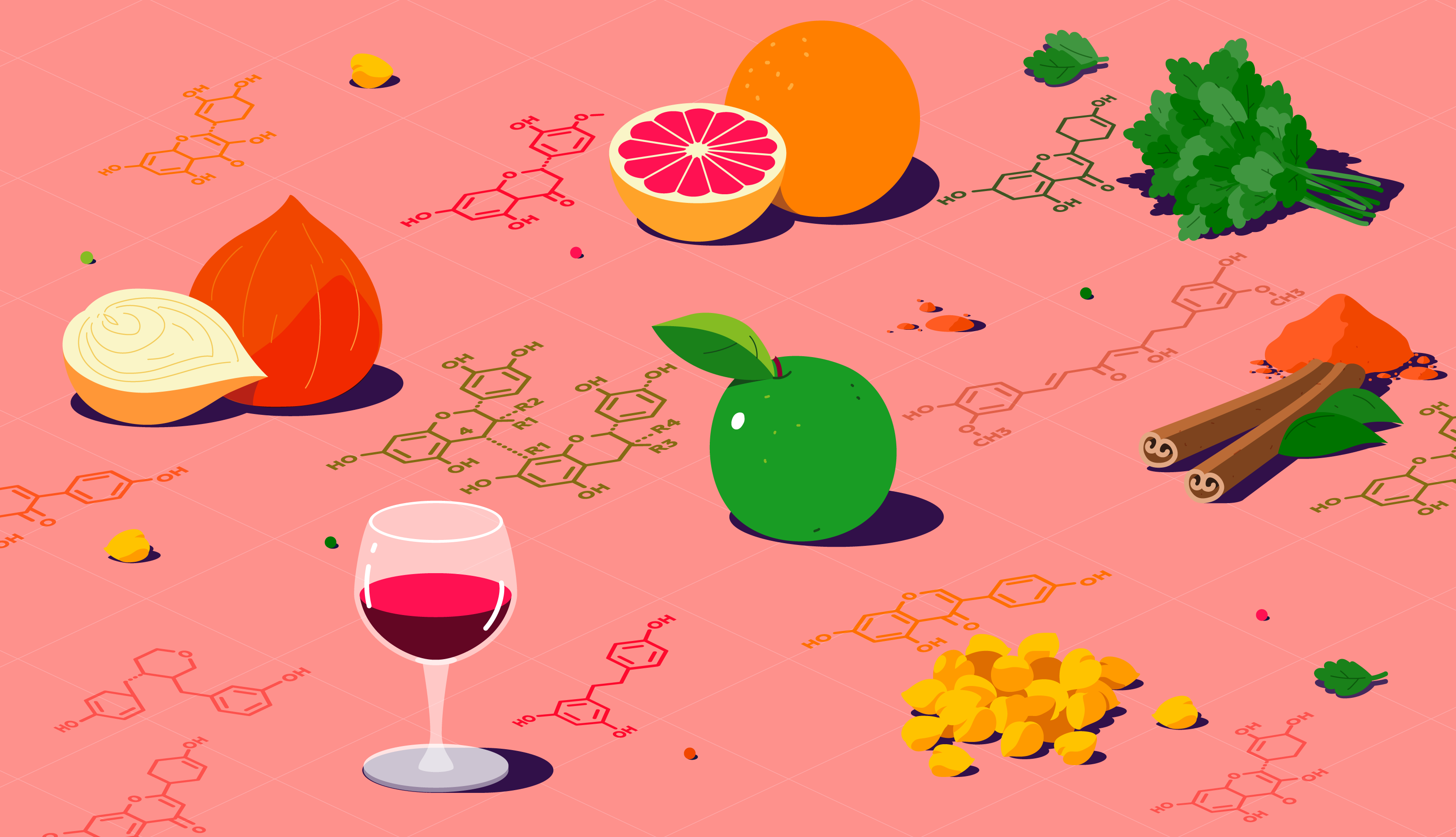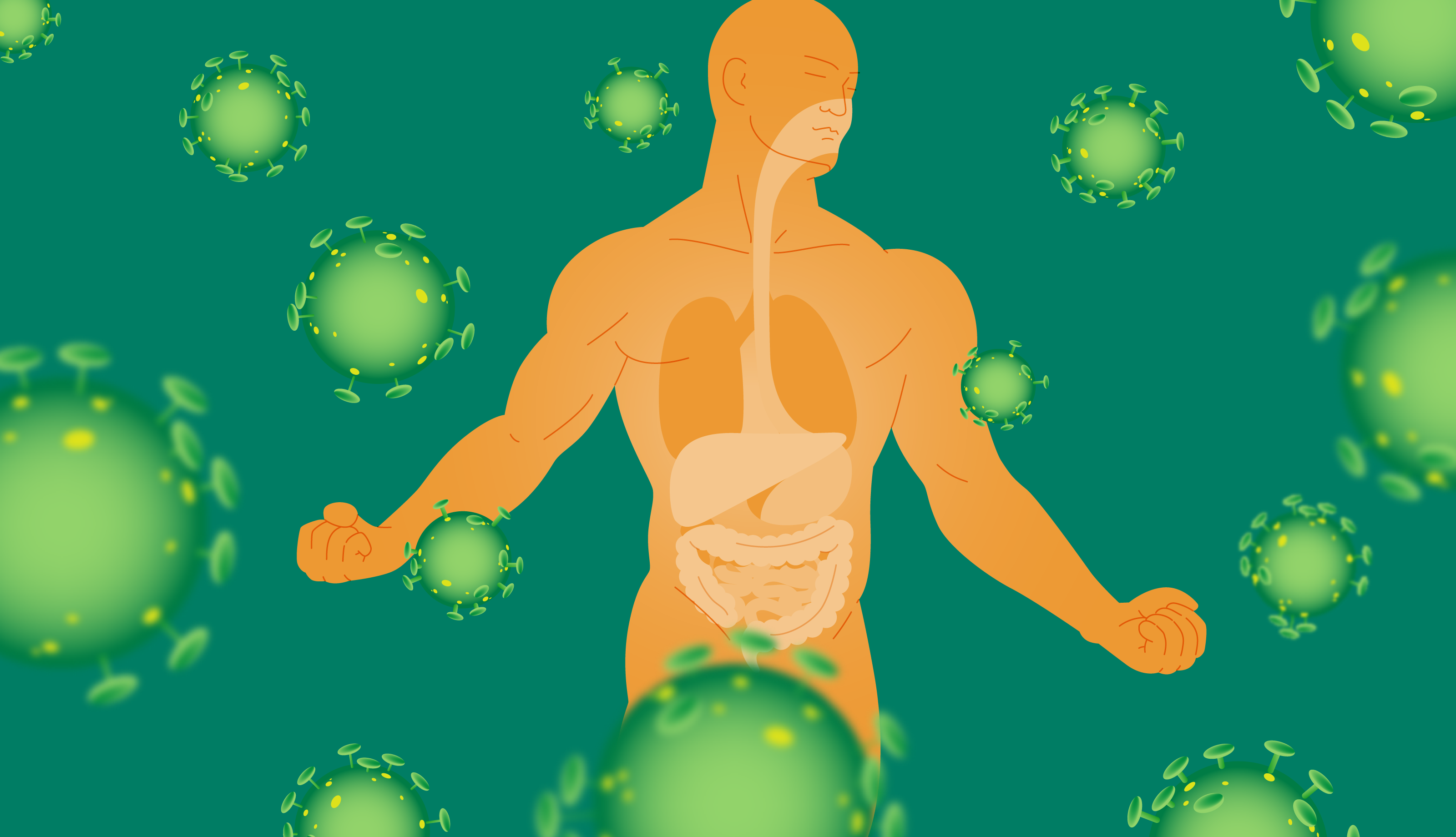Christmas is here. A time of love, laughter, and overindulgence. Don't let it throw your gut into disarray, with our top tips for a gut-friendly holiday.
It sounds idyllic: presents, special memories, and snow, finally the holidays have arrived. But realistically, it's late nights, rich foods, and family stress. The parties and build-up may be fun, but the season can take its toll on your gut microbiome.
Table of contents
- The feast: how to indulge intelligently
- Eat for your gut at Christmas
- Be smart about your booze intake
- Sleep, it's sadly still not optional
- Top up on serotonin foods for stress
- 10 top tips for a gut-friendly holiday
Unlike you, your intestinal microbes don’t have the chance to put the tree up, sit back, and relax. Instead, they must work hard to keep you healthy, a feat that’s easier said than done when most of us pile in nutrient-poor foods, lug litres of alcohol, and stress out when we leave all the shopping to the last minute.
Christmas can be a rough time for your gut and it can really stretch the ecosystem to its limits. However, it doesn’t mean it has to be boring and you can’t enjoy yourself. As Oscar Wilde so eloquently put it, "everything in moderation, including moderation".
The Feast: indulge intelligently
Feasting is a key part of the festivities, but too much of all things rich, fatty, and sweet and you’ll know all about it. Finding a good balance is vital.
On any day of the year, most Westerners fail to eat the recommended amount of fruit, vegetables, nuts, whole grains, and legumes, and Christmas Day is no exception. But the 25th of December should actually be the easiest day to consume a good amount of dietary fiber.
These natural foods are all examples of carbohydrates, a food group essential for our overall health and wellbeing. Why? Because they are a source of prebiotics, a nutrient supply for your gut bacteria.
When you eat dietary fiber, it travels relatively untouched through your gastrointestinal tract to your colon, where it is greeted by your gut microbes. They break down these complex carbohydrates through fermentation to produce essential substances like vitamins and short-chain fatty acids (SCFAs).
The production of SCFAs helps to keep the internal environment of your colon healthy and functioning effectively. For example, bacteria like Lactobacilli and Bifidobacteria make lactate as well as acetate to keep the gut environment stable and benefit the microbial community.
Basically, keeping the bacterial population in your gut well-nourished means they can keep your gut functioning optimally through the festive season. And, it’s easier to sustain these microbes than you might have initially thought.
☝️TIP☝️Some indigestible fibers, like cellulose, aren’t broken down by gut bacteria. Instead, they help your stool move through the gut, preventing constipation that is a common consequence of overindulgence.
Eat for your gut at Christmas
There are lots of prebiotic foods you can add to your festive feast to keep your digestion on track and your gut microbes nourished.
Temptation is everywhere during the holiday season: mountains of chocolate, rich sweet cakes, and more animal products than you can shake a stick at. Now, good things in moderation aren’t liable to cause you harm (it is Christmas after all), but balance is the key to pulling it off.
Rich sources of fiber will benefit you and your gut, and the main meal of the entire event is the perfect opportunity to indulge your gut too. Consider it a little gift from you to your microbes. Let’s have a look at what’s on the table and how it could benefit them.
Festive foods for beneficial bacteria
| Carrots | Bifidobacterium, Lactobacillus, Faecalibacterium, Roseburia |
| Brussels sprouts | Bifidobacterium, Roseburia spp., Eubacterium spp., Faecalibacterium prausnitzii |
| Potatoes (cooked and cooled) | Bifidobacterium, Faecalibacterium prausnitzii, Roseburia |
| Nuts | Bifidobacterium, Lactobacillus, Ruminococcaceae spp. |
You could even be a little adventurous this year and try something new, like ditching the goose or turkey for a nutritious, homemade nut roast. A main attraction which is not only sustainable, vegetarian-friendly, but is also a great source of fiber.
As the name suggests, they are made with nuts, but can also be supplemented with legumes, like lentils, as well as a variety of vegetables. Nuts like walnuts, almonds, and pistachios increase the abundance of butyrate-producers like F. prausnitzii, Roseburia, and Eubacterium, as well as Bifidobacteria and Lactobacillus.
So, there’s really no excuse not to pack in the nutrients over the festive period. We’re not saying you can’t have a mince pie or a slice of Christmas pudding, just remember to incorporate some good sources of fiber into your holiday diet. Trust us, you’ll be reaping the benefits.
Be smart about your booze intake
Tis the season to be merry, as they say, but too much of the good stuff and your gut might not thank you for it. Come to think of it, neither will your waistline or your head.
A hangover is not fun at the best of times, especially on Christmas Day. You’ve got to make small talk with the in-laws, but your head and gut are not playing ball. Sound familiar? We’ve all been there. The problem is, Christmas just wouldn’t be the same without a festive tipple.
You’ve opened your presents, go to put on your new outfit and it doesn’t fit. Don’t panic, this could be part of your hangover. Despite being liquid, alcohol actually dehydrates you and stops the hormone controlling your water levels from working properly.
Sometimes we use alcohol as an escape, but the desert works too
So, when you drink you need to pass water more often. But your cells, tissues, and organs need water to function, resulting in fluid retention. Your body holds onto the water needed to carry out many of the important metabolic processes, causing your body to bloat. That’s why your face looks puffy and you might struggle to zip up your jeans.
Thankfully, bloating can be short-lived, but alcohol irritates your digestive system, too. And, it doesn’t matter which end of the spectrum you go for either. Drinks with high alcohol content, 15% and above, prolong the time it takes to empty your stomach. So, it takes your gut microbes longer to breakdown food, causing increased gas production, stomach ache, and feeling full.
In the short term, neither of these events are desirable, but long-term, chronic alcohol consumption can lead to dysbiosis, an abnormal composition of bacteria making up the gut microbiome.
Research has shown that chronic alcohol consumption is associated with an increased abundance of Proteobacteria like Escherichia, Salmonella, and Helicobacter. Equally, drinking too much can affect the integrity of the gut barrier.
In short, your intestinal lining is not impenetrable. It needs to allow essential nutrients and substances to pass through it and to the parts of the body which need them. However, excessive drinking makes the lining too porous.
This means that the likelihood of inflammation rises. Alcohol also disrupts the diversity and composition of the gut microbiome. A reduction in good microbes means you’re less protected from conditions like alcohol-related liver disease.
But wait, it’s not all bad. If you enjoy a glass of red wine with your Christmas turkey, you may actually be benefiting your gut microbiome. That’s because red wine contains polyphenols which increase the abundance of beneficial microbes like Bifidobacteria, as well as members of the Firmicutes family.
If that wasn’t enough, polyphenol consumption has been linked to a reduction in Clostridium abundance. This is a group of bacteria which are associated with the progression of colon cancer and the development of inflammatory bowel disease (IBD).
Instead, why not have a glass of polyphenol-rich red wine (in moderation, of course) or, even better, an alcohol-free version. Lots of research shows that moderate consumption of red wine, and its non-alcoholic alternative, increases the growth of health-promoting bacteria, production of beneficial compounds, and prevents the growth of opportunistic pathogens.
However, we would recommend getting your polyphenols from other sources like the foods we mentioned above. But we know the holiday season is a time to let your hair down, we just recommend giving your gut microbiota a little consideration.
Sleep: it's still not optional
Late-night shopping, all-night partying, and frantic present wrapping are all synonymous with the holiday season. But lack of sleep can affect your gut microbiome.
Your gut and brain have a special two-way communication system called the gut-brain axis, which influences many of the body’s cognitive and emotional functions. That’s why your gut can affect your mood, sleep, and circadian rhythm.
You might know your circadian rhythm as your internal body clock, and it is important for determining processes like sleeping and eating. That’s why you tend to feel hungry or tired at around the same time every day.
If your circadian rhythm is disrupted, as it might be during the festive period, this will alter the balance of your microbiome. Studies have shown that sleep deprivation can cause changes to the bacterial populations.
Napping can't replace the benefits of a full night's sleep
For example, these disturbances are linked to obesity and decreased insulin sensitivity. What’s more, poor sleep goes hand-in-hand with alcohol consumption, bad food choices, and weight gain, especially during Christmas, and this can only exacerbate the effects on your gut environment.
Recent studies have shown that a lack of sleep can disrupt the composition of your gut bacteria. But this works both ways. In fact, people who get a good night’s sleep have a more diverse gut ecosystem. In short, a greater diversity of your intestinal microbes promotes better health.
Your gut microbiota has a role in your sleep quality and your overall mood. To avoid the side effects associated with a lack of sleep, you should aim to keep your pattern as regular as possible over the holiday season.
That doesn’t mean you have to say no to every party invite or miss all the good TV in the run-up to the big day. It just means you need to be sensible, like eating good food, consuming moderate amounts of alcohol, and getting your usual forty winks.
Top up on serotonin for stress
Charades, Monopoly, who cooks the dinner best, all of these can instigate a family argument at Christmas. But stress leads to changes in your colonic bacteria.
Social stress has been shown to negatively impact the gut microbiota. Again, the gut-brain axis is involved and influences your intestinal environment. Increased levels of stress can reduce the abundance of health-promoting bacteria, like Bifidobacteria and Lactobacillus.
So, the activities of the bacteria living in your colon can influence your levels of anxiety and stress. Yet, if your gut microbiome is balanced, these bacteria can even help to build your resilience towards stressful situations.
During demanding conditions, the level of the stress hormone, cortisol, rises. However, an increased presence of Lactobacillus is associated with lower cortisol levels. Therefore, the more diverse your microbiome, the more resilient it should be to stress.
Equally, another hormone, serotonin, regulates your mood, anxiety, and happiness. Low levels of it is linked to depression. Your gut microbiome, however, can increase the production of serotonin.
Sources of serotonin in the diet
| banana | pineapple | tomato |
| strawberry | spinach | Chinese cabbage |
| kiwi | chicory | plum |
When your gut bacteria produce short-chain fatty acids by fermenting fiber, they interact with the cells in your gut which produce the hormone. So, when enough SCFAs have been made, your gut microbiota increases the production of serotonin, making you feel happy and preventing depression.
This means that through the influence of other lifestyle factors, like diet, where you can promote the abundance of healthy bacteria, you can limit the effects of stress. Keeping your gut microbes well nourished is key to all-round physical and mental health.
☝️ Top tips for a gut-friendly Christmas
The holiday season can be highly stressful and the perfect excuse to be lax about what we’re putting into our body. However, this can have a great impact on our gut microbiome, it’s diversity, and the abundance of health-promoting bacteria.
But there’s plenty of nutrient-rich foods on offer at Christmas which can nourish the bacterial populations in your colon, enabling them to keep your gut healthy. Plus, eating the right foods can help to combat the effects of sleep deprivation and stress, also common over the festive period!
1. Take advantage of the fiber-rich foods on the dinner table
2. Make small food swaps like some chocolates for some raw nuts
3. Go bold and switch your usual bird for a nut roast
4. Drink alcohol in moderation and get plenty of water
5. Try non-alcoholic red wine for the polyphenols
6. Try to maintain your normal sleep routine
7. Plan ahead to minimise last-minute stress
8. Take five if the game of Monopoly causes tension
9. Eat prebiotic foods to boost ‘happy’ hormones
10. Moderation feels great the next day
- Andersson, H et al., 2016. Oral Administration of Lactobacillus plantarum 299v Reduces Cortisol Levels in Human Saliva During Examination Induced Stress: A Randomized, Double-Blind Controlled Trial. International Journal of Microbiology.
- Banberger, C et al., 2018. A Walnut-Enriched Diet Affects Gut Microbiome in Healthy Caucasian Subjects: A Randomized Controlled Trial. Nutrients: 10
- Bode, C and Bode, J, C., 1997. Alcohol’s Role in Gastrointestinal Tract Disorders. Alcohol Health and Research World: 21, pp 76-83.
- Li, Y et al., 2018. The Role of Microbiome in Insomnia, Circadian Disturbance and Depression. Front Psychiatry: 9.
- Parkar, S, G et al., 2019. Potential Role for the Gut Microbiota in Modulating Host Circadian Rhythms and Metabolic Health. Microorganisms: 7.
- Rivière, A et al., 2016. Bifidobacteria and Butyrate-Producing Colon Bacteria: Importance and Strategies for Their Stimulation in the Human Gut. Front. Microbiol.
- Smith, R, P et al., 2019. Gut Microbiome Diversity is Associated with Sleep Physiology in Humans. PLOS One.
- [Warren, F, J et al., 2018. Food Starch Structure Impacts Gut Microbiome Composition. mSphere: 3.](https://www.ncbi.nlm.nih.gov/pmc/articles/PMC5956147























